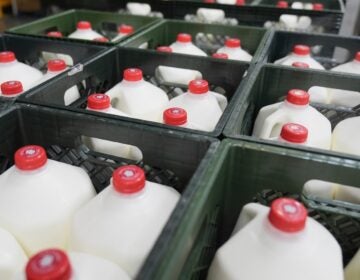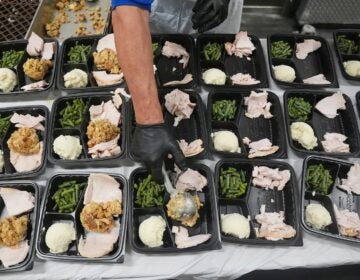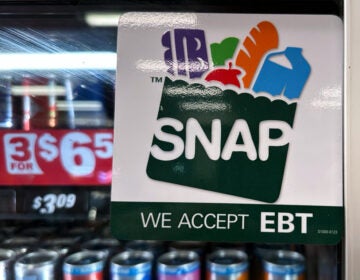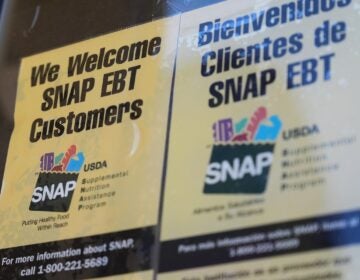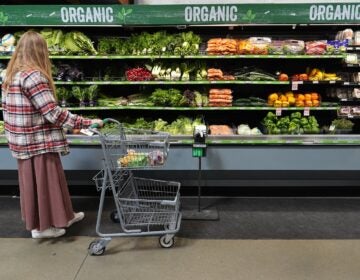Shapiro pledges $5M in ‘emergency’ state aid to food banks as SNAP crisis grows in Pennsylvania
The announcement came minutes after a judge ruled in favor of Pennsylvania and other states suing to make the Trump administration use contingency funds to fund SNAP.
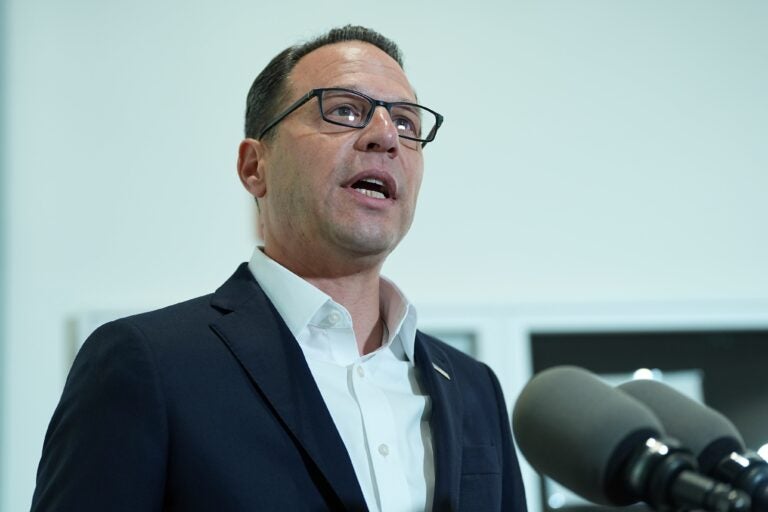
FILE - Without federal payments, Gov. Josh Shapiro’s administration said more than $366 million in monthly SNAP payments will pause in Pennsylvania. (AP Photo/Matt Rourke, File)
SNAP funding freeze: What to know
- 42 million people — about 1 in 8 Americans — rely on SNAP
- Locally, that includes nearly 2 million people in Pa., with roughly 685,000 in the Philadelphia region, and more than 800,000 in New Jersey
- Here’s how to find other free food resources in the Philly region and in South Jersey, and how to help
Standing by food destined for residents in need at Philabundance on Friday, Pennsylvania Gov. Josh Shapiro announced an emergency response to what he characterized as an avoidable and unprecedented crisis. Shapiro said the state is stepping in with $5 million in emergency aid for food banks and a disaster declaration to expedite relief.
The halt in benefits, driven by the ongoing federal shutdown and the failure to pass a budget, marks the first time in U.S. history that the government has stopped issuing payments from the Supplemental Nutrition Assistance Program, commonly known as SNAP. Around 2 million Pennsylvania residents are being impacted.
“They have never had their benefits paused before until right now,” Shapiro said. “This is all because the Trump administration has decided that it will not be issuing SNAP benefits for the month of November, which, of course, begins tomorrow. They made this determination even though they are sitting on billions of dollars of congressionally appropriated contingency funds.”
Earlier this week, Pennsylvania joined 24 other states and Washington, D.C., in suing the U.S. Department of Agriculture over the decision, arguing that the agency has the legal responsibility and financial ability to continue issuing benefits despite the budget impasse.
Shortly before Shapiro took the podium, a federal judge ruled in favor of the plaintiffs and required the USDA to use the emergency funds to keep SNAP going. Shapiro said that the state’s efforts would continue regardless.
“Given this administration and its propensity to ignore the rule of law, I don’t trust that they’re going to follow this judge’s ruling,” he said. “I sure hope the Trump administration does not appeal and instead adheres to the rule of law.”
The emergency state funds will be distributed through the nonprofit Feeding America, a statewide association for Pennsylvania’s member food banks, and Pennsylvania Agricultural Surplus System, a state initiative that connects Pennsylvania farmers with food banks that collectively serve all 67 counties.
The governor’s disaster declaration gives state agencies broader authority to distribute funding quickly and cut through red tape, immediately allowing food banks to make purchases and scale up their supply in just a matter of days.
Shapiro, noting that even those funds would not be sufficient to make up for the lost federal benefits, announced the launch of a private donation campaign to support the emergency response, called the “SNAP Emergency Relief Fund.” It has already received donations from prominent figures, including entrepreneurs Mark Cuban and Thomas Tull and 76ers co-owner David Adelman.
“Over the last 24 hours, I have worked closely with the private sector and asked Pennsylvanians who are fortunate, asked Pennsylvanians who have done well to step up and help their neighbors in this time of need,” Shapiro said. “As a result of my calls to those leaders in the private sector, we have raised an initial $1 million that will go on top of the state funds that we are releasing.”
A system already strained
SNAP provides food assistance for 42 million people across the U.S., about 1 in 8 Americans. The 2 million recipients in Pennsylvania include more than 713,000 children and nearly 700,000 older adults who rely on it to meet basic nutritional needs. Around 472,000 recipients live in Philadelphia, roughly 30% of the city’s population, according to the Pennsylvania Department of Human Services.
SNAP recipients in Pennsylvania receive an average $181 per month in benefits, with some getting as much as $250 or more, depending on household size. Older adults, single parents and disabled residents are among those who will be hit the hardest. For many seniors, SNAP helps bridge the gap between Social Security income and basic nutrition.
Even before the federal government shut down, Pennsylvania’s food banks were already under serious pressure from earlier federal cuts to SNAP and new work requirements for recipients.
The commonwealth’s own budget impasse, now in its fourth month, has also had an impact, pausing $25 million in aid from going to food banks. Meanwhile, the shutdown has furloughed over 66,000 federal workers across Pennsylvania, cutting off their paychecks and adding even more demand.
Philabundance CEO Loree Jones Brown said the state response comes just in time.
“Pantries are seeing scared faces and longer lines and this is happening at a time when we were already seeing record numbers,” she said. “Our pantry partners are reporting 30% more increase here. Mine’s doubled there. Dual income households are seeking support like never before. Meanwhile, food banks and pantries are left with less resources to meet the need.”
For Robin Perkins, who lost her job of seven years in April, the loss of the federal benefits came at a tough time of year.
“I have $30 left that I’m holding on to for the holiday season,” she said. “There are some people who have jobs or some who are unemployed that all use SNAP. I’m grateful to be part of a community that is coming together to pull resources and take care of each other.”
The shutdown and the showdown
SNAP is an economic driver in Pennsylvania. According to state data, more than 10,000 retailers accept SNAP, with $354 million issued in benefits just last month. The USDA estimates that every $1 in SNAP benefits adds $1.54 to the local economy.
Pennsylvania Secretary of Agriculture Russell Redding said that the SNAP freeze puts farmers and local food producers at risk as well.
“Food security issues are economic security issues,” he said. “You know the story of our federal farm bill, 70 years in the making, has had at its very cornerstone our food nutrition programs coupled with our production programs at the Environment Rural Development. It’s built on a partnership between the USDA and our states.”

Get daily updates from WHYY News!
WHYY is your source for fact-based, in-depth journalism and information. As a nonprofit organization, we rely on financial support from readers like you. Please give today.



